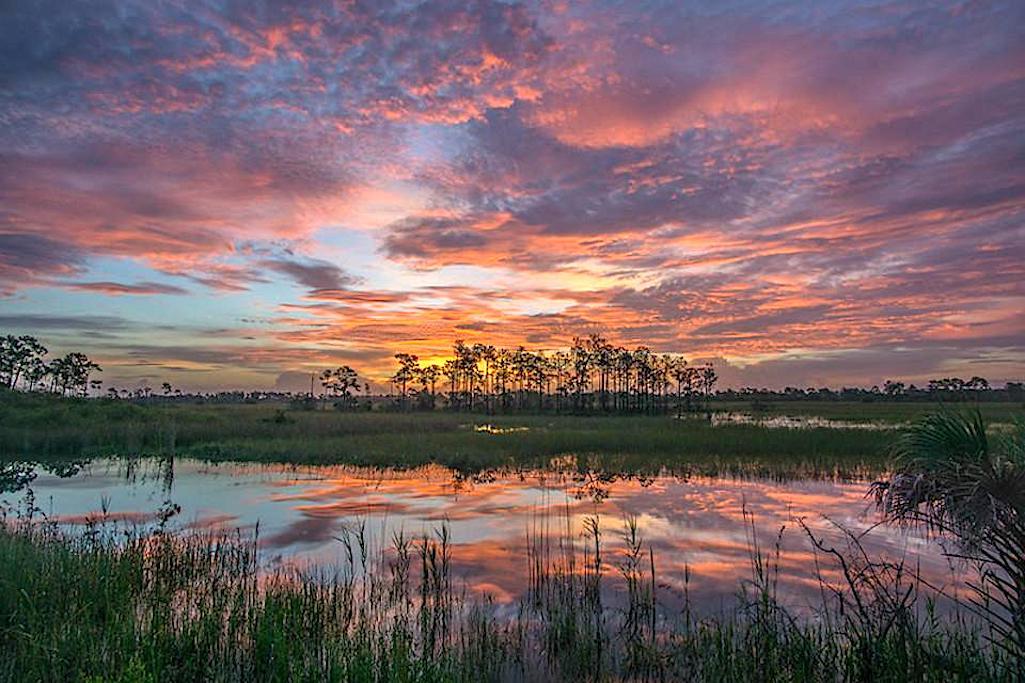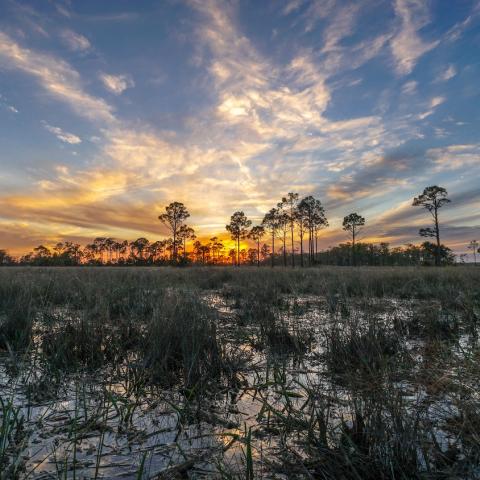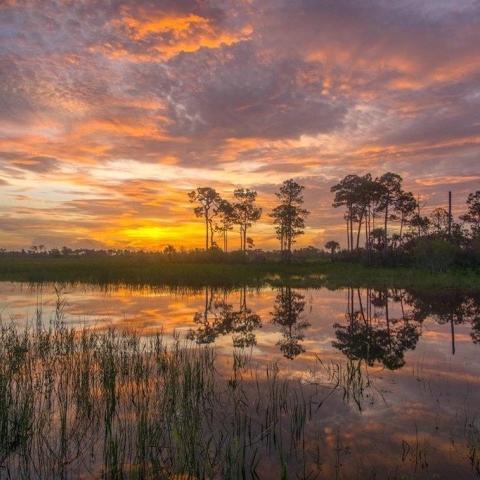
There's congressional opposition to a proposal to establish official wilderness in Big Cypress National Preserve/NPS file
A long-running effort to designate official wilderness within Big Cypress National Preserve, a Floridian landscape of sawgrass prairie and cypress swamps the size of Rhode Island, appears headed to failure again under Republican concerns and tribal opposition.
An amendment tacked onto the Interior Department appropriations bill adopted last month by the U.S. House of Representatives specifically prohibits the National Park Service from designating official wildnerness in the preserve, which not only is key to the Comprehensive Everglades Restoration Plan but protects a highly biodiverse habitat for myriad plant and animal species.
Two years ago the Park Service, in a backcountry access plan and wilderness study, recommended that 147,910 acres of the preserve, or roughly 25 percent of Big Cypress’s 729,500 acres, be protected as official wilderness. While conservationists generally support the proposal, it has drawn opposition from some in Florida's congressional delegation, including both senators.
"We are deeply concerned about the potential hindrance of natural resource management, especially in regard to prescribed fire, invasive species control, and the maintenance of native fish and wildlife habitats," U.S. Sens. Marco Rubio and Rick Scott, both Republicans, told Interior Secretary Deb Haaland in a March letter. "We have heard from stakeholders who have raised valid concerns that the proposed wilderness designation would unnecessarily impede effective management of invasive exotic species and the preservation of native fish and wildlife habitats, while also restricting access to the public and tribes.
"... The landscape of the Big Cypress National Preserve has been successfully managed and has been a home for humans for centuries and should continue as such," the two added. "The Department of Interior should appropriately address stakeholder concerns and ensure that the management of the preserve effectively addresses actual challenges for the benefit of the ecosystem and the public."
The Park Service's preferred alternative also would add about 100 miles of primary and secondary off-road vehicle miles in the preserve, including 39 miles of airboat routes. More than 80 additional "backcountry destinations" would be established as well if that alternative takes effect.
Sen. Scott in May introduced the Prohibiting Wilderness Designations on Big Cypress National Preserve Act, which his office said would codify a request from the Miccosukee Tribe of Indians of Florida to oppose the proposed wilderness designation in the preserve.
The one-page measure states, “Big Cypress National Preserve may not be designated as wilderness or as a component of the National Wilderness Preservation System.”
Similar legislation moved through the House and was attached to the Interior appropriations bill by Rep. Scott Franklin, R-Florida.
“In Florida, we know no one is better at preserving our state’s natural beauty than the locals who have lived on the land for generations," said Franklin. "This overreach by the Biden Administration is not only unnecessary to protect this land, it’s in vehement opposition to the will of the affected counties in my district, our state’s agencies, and local Tribal Nations.”
At the National Parks Conservation Association, Melissa Abdo said the preserve needs official wilderness protection.
“Big Cypress National Preserve faces myriad threats, from oil and gas exploration to unauthorized off-road vehicle impacts and more. Despite its rare beauty, massive ecological significance, and pivotal importance to the Greater Everglades ecosystem, Big Cypress has endured significant degradation over the years,” said Abdo, NPCA’s Sun Coast regional director. “That’s why for decades now, conservationists have been advocating for greater safeguards for the fragile natural resources in Big Cypress.
“The Park Service is required by law to evaluate all the lands it manages for wilderness eligibility, and only Congress can designate wilderness. Recently introduced legislation would take a potential wilderness designation for parts of Big Cypress completely off the table. This legislation would preemptively remove valuable tools from Congress’ own toolbox, while allowing the problems at Big Cypress to persist.”
In an email to the Traveler she added that “NPCA recognizes the unique connection and cultural identity that the Miccosukee Tribe of Indians of Florida and the Seminole Tribe of Florida share with Big Cypress. We are eager for a solution that protects Big Cypress in perpetuity and simultaneously honors tribal interests and rights.”
The outcome of the legislation to block wilderness designation will be determined later this fall when the House and Senate work to come to terms on their respective appropriation measures.



 Support Essential Coverage of Essential Places
Support Essential Coverage of Essential Places







Comments
Isn't wilderness, via the Wilderness Act of 1964, the highest level of environmental protection afforded by Congress? It isn't clear to me how wilderness protection would impede environmental management. If this is true, then it seems the Wilderness Act needs to be amended.